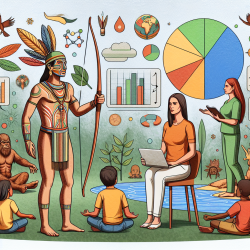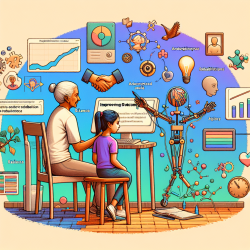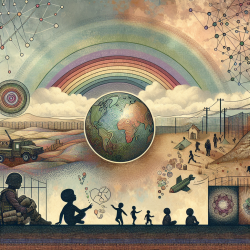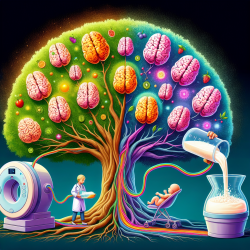Unlock the Secret: How Amazonian Hunters Can Teach Us About Sustainable Therapy Practices!
As a passionate advocate for data-driven decisions in speech-language pathology, I am always on the lookout for innovative approaches that can enhance therapeutic outcomes for children. Recently, I came across a fascinating research article titled The socio-cultural significance of mineral licks to the Maijuna of the Peruvian Amazon: implications for the sustainable management of hunting. This study provides profound insights into the sustainable management of natural resources, which can be translated into effective strategies for our field.
Understanding the Maijuna's Approach
The Maijuna, an Indigenous group in the Peruvian Amazon, have a unique relationship with mineral licks—naturally occurring areas where animals obtain essential minerals. These sites are culturally significant and serve as focal points for hunting. The Maijuna's sustainable hunting practices, which involve exclusive family use of specific mineral licks, help prevent overexploitation of wildlife populations.
By incorporating traditional knowledge and maintaining exclusive use rights, the Maijuna effectively manage their resources, ensuring ecological sustainability and food security. This approach highlights the importance of integrating cultural and ecological needs into management plans.
Applying These Principles to Speech-Language Pathology
So, how can we apply these principles to improve our therapy practices? Here are some actionable steps:
- Individualized Treatment Plans: Just as the Maijuna tailor their hunting practices to specific mineral licks, we should create personalized treatment plans that cater to the unique needs of each child. Use data to identify the most effective interventions and adjust them as needed.
- Family Involvement: The Maijuna's practice of family-exclusive use of mineral licks underscores the importance of involving families in the therapeutic process. Encourage parents and caregivers to participate in sessions and provide them with strategies to support their child's progress at home.
- Cultural Sensitivity: The Maijuna's deep connection to their cultural practices reminds us to be culturally sensitive in our therapy approaches. Understand and respect the cultural backgrounds of the children you work with, and incorporate culturally relevant materials and activities into your sessions.
- Community-Based Approaches: The success of the Maijuna's community-based management plans can inspire us to adopt community-focused strategies. Collaborate with schools, community organizations, and other stakeholders to create a supportive network for children receiving therapy.
- Continuous Learning and Adaptation: The Maijuna's ability to adapt their practices over time highlights the importance of continuous learning. Stay updated with the latest research and be open to incorporating new techniques and technologies into your practice.
Encouraging Further Research
While the Maijuna's approach offers valuable lessons, it also underscores the need for further research. Understanding the socio-cultural significance of various practices can lead to more effective and sustainable therapy methods. I encourage practitioners to explore interdisciplinary research and consider how findings from other fields can enhance our work.
In conclusion, the Maijuna's sustainable management of mineral licks provides a compelling model for improving therapy practices. By embracing individualized treatment plans, involving families, being culturally sensitive, adopting community-based approaches, and committing to continuous learning, we can create better outcomes for the children we serve.
To read the original research paper, please follow this link: The socio-cultural significance of mineral licks to the Maijuna of the Peruvian Amazon: implications for the sustainable management of hunting.










